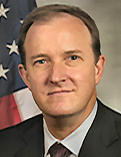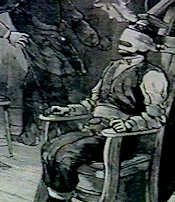 The last four items posted by the Bureau of Industry and Security (“BIS”) — and which are linked here, here, here, and here) on its list of reported export violations — all involved impositions of export denial orders on individuals already convicted of crimes. Two of the four are currently languishing in federal correctional institutions and one served a two-year sentence of incarceration.
The last four items posted by the Bureau of Industry and Security (“BIS”) — and which are linked here, here, here, and here) on its list of reported export violations — all involved impositions of export denial orders on individuals already convicted of crimes. Two of the four are currently languishing in federal correctional institutions and one served a two-year sentence of incarceration.
Needless to say, there is nothing (other than, of course, the lapse of the Export Administration Act) prohibiting BIS from piling more punishments on these individuals, even though arguably incarceration, as the harshest penalty short of execution, really should be seen as sufficient punishment. (By the way, I am not suggesting to the export hawks on the hill, who seem to increase penalties every time they get a chance, that the death penalty might be a proper punishment for exporting a teflon-lined valve without a BIS license.) But I think that these add-on, johnny-come-lately penalties ought to be put in proper context by noting that unconscionable breadth of the standard denial order as currently drafted.
For example, after the individual subject to the denial order is released from prison, it is fair to say that employment opportunities are already restricted because of his or her incarceration or conviction. But the denial order, which prohibits the individual from “directly or indirectly” “benefiting in any way from any transaction involving any item exported or to be exported from the United States” further limits those employment possibilities. Taking a job with any company that is involved in any exports would seem to violate the denial order even if the job was a menial job with no connection to the company’s export activities. And what company doesn’t export? Well, I suppose the individual subject to the order could always work for a shoe shine stand or iron shirts in a laundry.
Additionally, the Denial Order effectively prohibits the subject individual from travelling abroad. Travel abroad would result in an export of the individual’s baggage and personal effects (unless, of course, the individual travels in, er, a state of nature). The standard denial order even explicitly denies the subject individual the ability to use the BAG license exception which ordinarily covers personal effects carried with a traveler oversea. The prohibition on using an item that has been exported from the United States arguably prohibits the subject individual from using airplanes, boats and automobiles even for domestic travel if they’ve ever left the United States. Of course, since the person subject to the denial order is working for a shoe shine stand or a shirt laundry, travel of any kind won’t really fit in his or her budget
The standard denial order doesn’t incorporate any of the routine export exemptions, such as those for informational materials. Sending a birthday card to a relative abroad could wind up costing about $250,000 more than the cost of the card or the postage. Arguably the Berman Amendment applies even if the standard denial order doesn’t say so, but by not explicitly exempting informational materials, the order at a very minimum deters the individual from trading information with relatives and friends abroad.
Finally, a person subject to a denial order might wind up with a BIS charging letter as thanks for his or her contributions to U.S. charities sending food, aid, medicine, medical supplies and relief to Haiti or other scenes of catastrophic natural disaster.
Export denial orders may well have a legitimate administrative purpose (assuming that they are subsequently permitted by authorizing legislation), but current export reform efforts provide an opportunity to rewrite the standard denial order to eliminate its excessively broad scope. It also provides an opportunity to consider whether anything is really gained by routinely and automatically imposing a denial order on parties already subjected to substantial criminal penalties.


 Posted by
Posted by  Category:
Category: 

 Last week the Bureau of Industry and Security (“BIS”)
Last week the Bureau of Industry and Security (“BIS”) 

 The last four items posted by the Bureau of Industry and Security (“BIS”) — and which are linked
The last four items posted by the Bureau of Industry and Security (“BIS”) — and which are linked 

